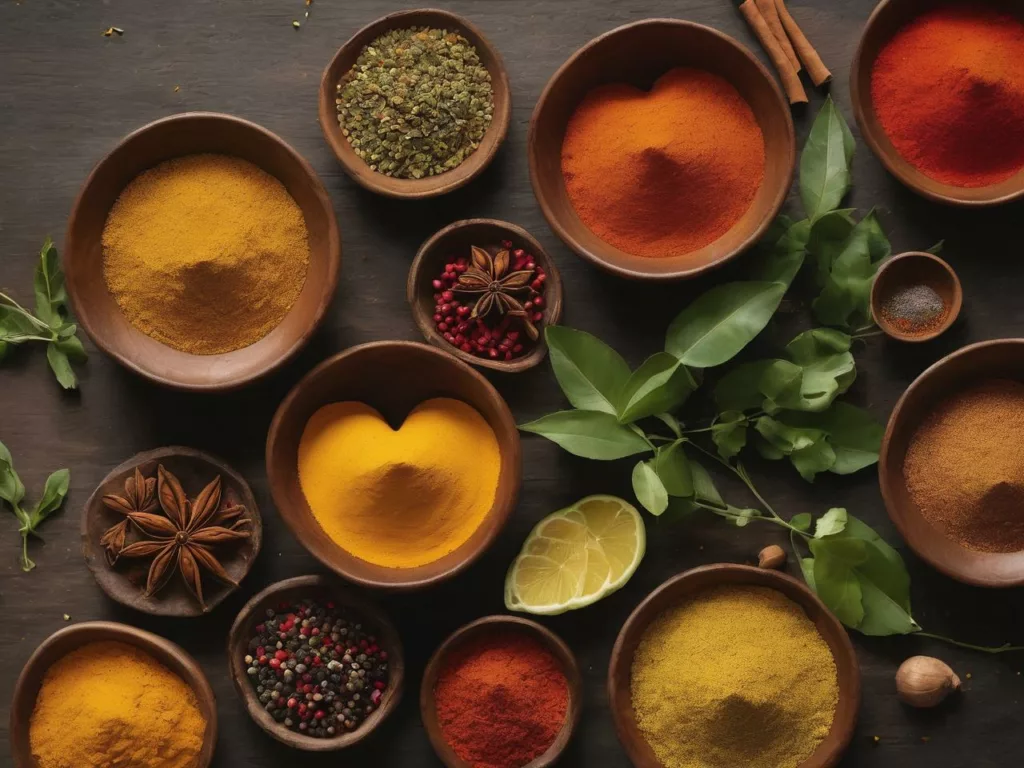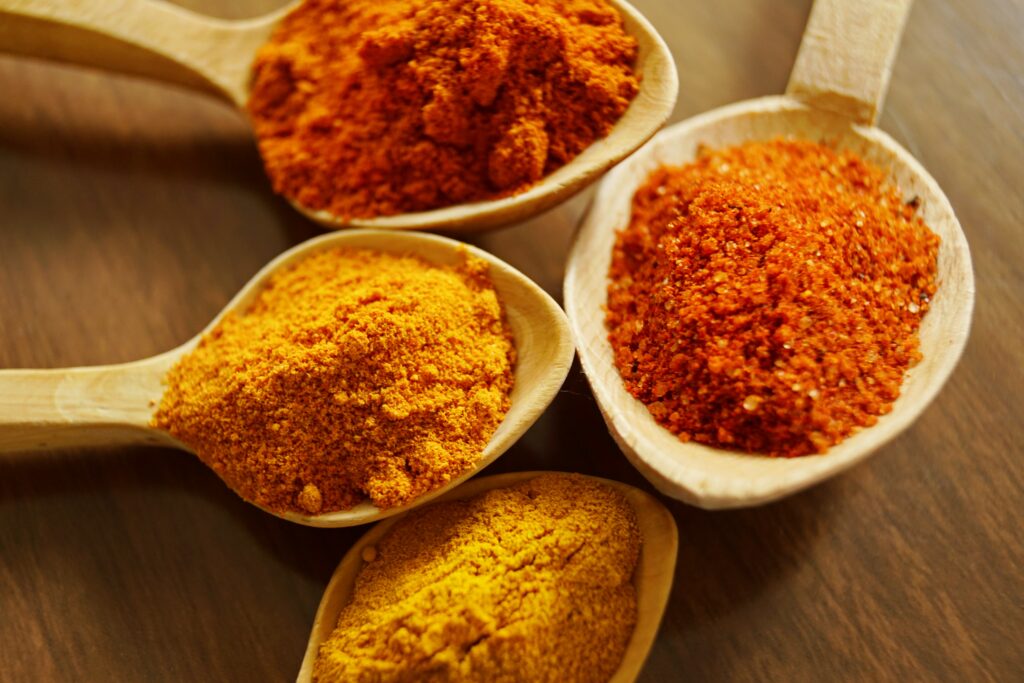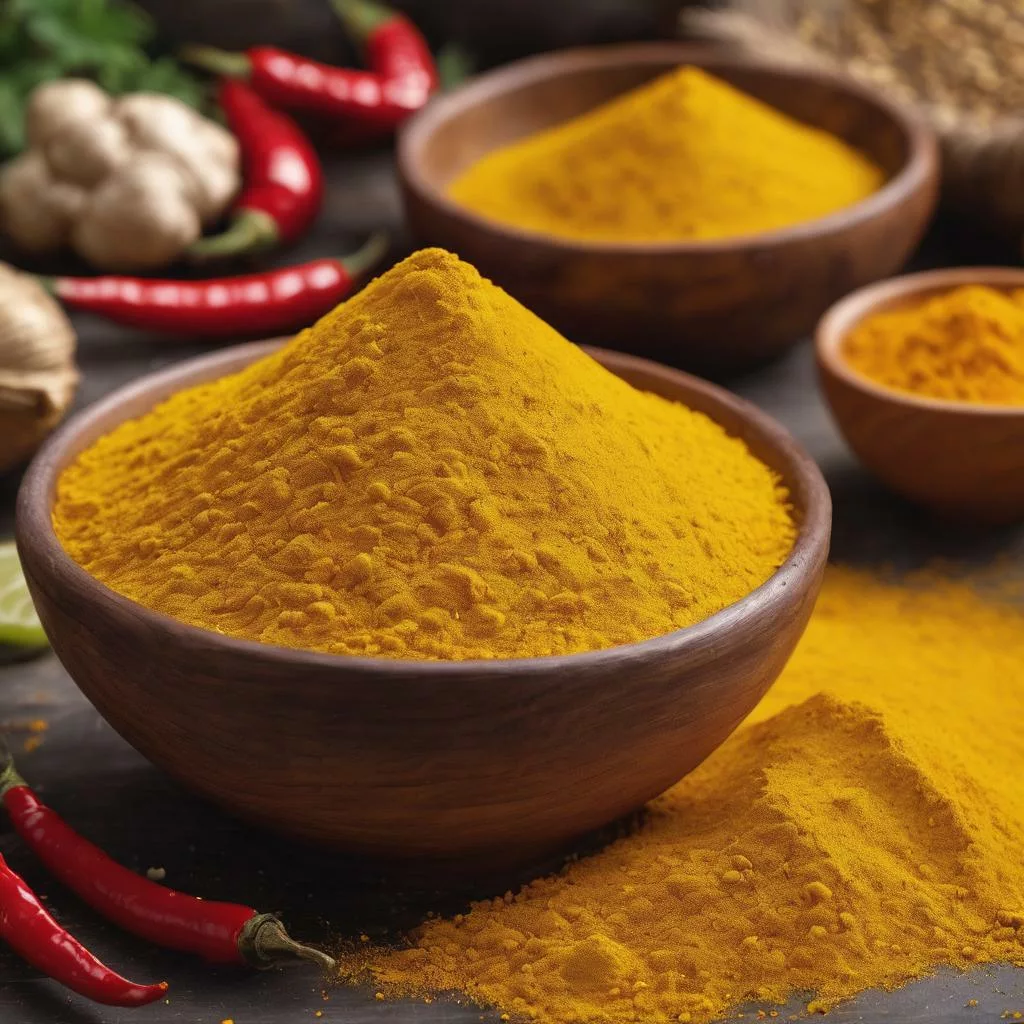
Golden spice (turmeric) has potential benefits for your heart health.
This versatile herb has been gaining attention for its ability to reduce inflammation, lower cholesterol levels, and even impact blood pressure. It has never been more interesting to examine the data supporting turmeric’s potential to prevent heart disease.
So, if you’re wondering if this golden spice can improve your heart health, keep reading to uncover the facts.
Turmeric’s Role in Heart Health
If you want to improve the condition of your heart, including turmeric in your diet may be a wise choice. Turmeric is known for its antioxidant properties, which can help protect your heart from damage caused by free radicals. Free radicals are unstable molecules that can lead to heart disease by oxidative stress and inflammation. By consuming turmeric, you can increase the levels of antioxidants in your body, helping to reduce the risk of heart disease.
Another important role of turmeric in heart health is its ability to prevent blood clots. Blood clots can block the arteries and lead to heart attacks or strokes. Turmeric contains a compound called curcumin, which has been shown to have antiplatelet activity. This means that it can help prevent platelets in the blood from clumping together and forming clots.
Incorporating turmeric into your diet can be as simple as adding it to your meals or drinking turmeric tea. However, it’s important to note that turmeric alone isn’t a magic cure for heart disease. It should be used in conjunction with a healthy lifestyle, including a balanced diet and regular exercise. Consult with your healthcare provider before making any major changes to your diet or starting any new supplements.
How Turmeric Reduces Inflammation
To understand how turmeric reduces inflammation, it is important to explore the mechanisms through which this golden spice exerts its anti-inflammatory effects. Turmeric contains a compound called curcumin, which has been found to have potent anti-inflammatory properties. Curcumin works by inhibiting various molecular pathways involved in inflammation, including the activation of inflammatory enzymes and the production of inflammatory cytokines. This can help reduce inflammation in the body and alleviate symptoms associated with inflammatory conditions such as arthritis.
| Mechanism | Effect |
|---|---|
| Inhibits inflammatory enzymes | Reduces the production of inflammatory molecules |
| Suppresses inflammatory cytokines | Decreases inflammation in the body |
| Modulates immune responses | Balances immune system activity |
Studies have shown that this golden spice in turmeric can help reduce joint pain and inflammation in people with arthritis. It has been suggested that curcumin may target multiple inflammatory pathways, making it a promising natural alternative for managing arthritis symptoms. However, more research is needed to fully understand the effectiveness and optimal dosage of turmeric for treating arthritis.
Turmeric’s Effect on Cholesterol Levels

Turmeric’s effect on cholesterol levels can be significant for improving your heart health.
Research suggests that turmeric, a golden spice commonly used in curry dishes, may help lower cholesterol levels, particularly LDL cholesterol or ‘bad’ cholesterol.
LDL cholesterol is a major risk factor for cardiovascular diseases like heart attacks and strokes. Studies have shown that curcumin, the active compound in turmeric, can reduce LDL cholesterol levels by inhibiting its production in the liver.
Additionally, turmeric has been found to increase HDL cholesterol, or ‘good’ cholesterol, which helps remove excess cholesterol from the bloodstream. Furthermore, turmeric’s effect on triglyceride levels, another blood fat linked to heart disease, is also promising.
Golden Spice’s Impact on Blood Pressure
Turmeric can also have a positive impact on your blood pressure levels. The active compounds in turmeric, called curcumin, may help reduce high blood pressure.
One study published in the journal Nutrients found that curcumin supplementation significantly reduced both systolic and diastolic blood pressure levels in participants with metabolic syndrome. Another study published in the American Journal of Hypertension showed that curcumin supplementation led to a modest reduction in blood pressure in adults with prehypertension or stage 1 hypertension.
Additionally, turmeric’s effect on diabetes may indirectly contribute to lower blood pressure levels. By improving insulin sensitivity and reducing inflammation, turmeric may help control blood sugar levels, which can have a positive impact on blood pressure. Moreover, turmeric’s impact on kidney function may also play a role in blood pressure regulation.
Curcumin is suggested to help protect against kidney damage and improve kidney function, which can have a positive effect on blood pressure levels. Overall, while turmeric shows promise for improving heart health, more research is needed to fully understand its impact on blood pressure.
It’s always advisable to consult with a healthcare professional before incorporating any new supplement into your routine.
You can also check out what black ginger can do to your body.
Turmeric’s Potential for Preventing Heart Disease
By incorporating turmeric into your diet, you can potentially prevent heart disease and improve your overall heart health. Turmeric, a golden spice commonly used in Indian cuisine, has been found to have numerous health benefits. When it comes to heart health, turmeric’s antioxidant properties play a crucial role.
Antioxidants help protect the body from damage caused by harmful molecules called free radicals. Curcumin, the main active compound in turmeric, has been extensively studied for its potential benefits in cardiovascular health. Research suggests that curcumin may help reduce inflammation, improve blood vessel function, and lower cholesterol levels, all of which are important factors in preventing heart disease.
Adding turmeric to your meals or taking a curcumin supplement could be a simple yet effective way to support your heart health.
Frequently Asked Questions
Are There Any Potential Side Effects or Risks Associated With Consuming Turmeric for Heart Health?
When consuming turmeric for heart health, it’s important to be aware of potential side effects and risks. Ensure you’re informed about possible adverse reactions and consult with a healthcare professional for personalized advice.
Can Turmeric Be Taken in Supplement Form for the Same Heart Health Benefits?
Taking turmeric supplements can provide the same heart health benefits as consuming turmeric in food. However, it is important to note that the dosage of turmeric in supplements may vary, so consult with a healthcare professional for guidance.
How Much Turmeric Should Be Consumed Daily to See Improvements in Heart Health?
To improve heart health, it’s important to consider turmeric dosage. Studies suggest that consuming 1-1.5 grams of turmeric per day may have potential benefits for heart disease.
Is Turmeric More Effective for Heart Health When Consumed on Its Own or When Combined With Other Ingredients?
When it comes to improving your heart health, you may be wondering if turmeric is more effective on its own or when combined with other ingredients. Let’s explore the benefits of both approaches.
Are There Any Specific Populations or Individuals Who Should Avoid Consuming Turmeric for Heart Health Reasons?
If you have gallbladder problems, are pregnant, or have bleeding disorders, it’s best to avoid turmeric for heart health. Potential risks include stomach upset, dizziness, and increased bleeding. Always check with your doctor before starting any new supplement.
Conclusion
In conclusion, incorporating turmeric into your diet can have a positive impact on heart health.
Studies have shown that turmeric helps reduce inflammation, lower cholesterol levels, and potentially prevent heart disease.
One particularly compelling statistic is that regular consumption of turmeric has been linked to a 65% reduction in the risk of heart attacks.
So why not add this golden spice to your meals and give your heart some extra love?


